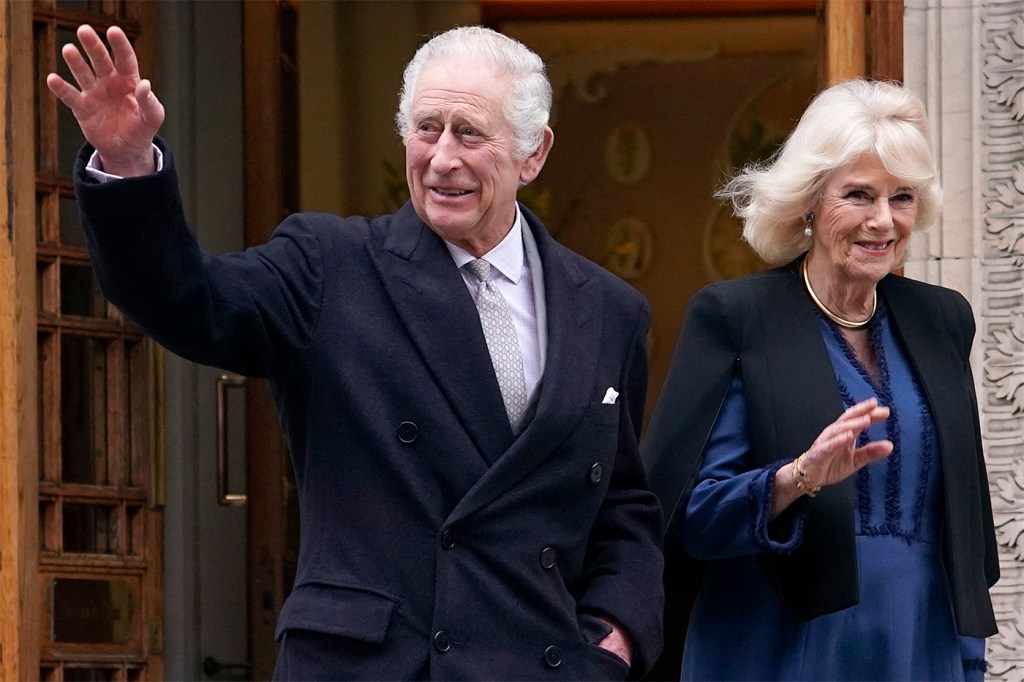How King Charles’ cancer diagnosis marks a historic first for the British Royal Family
King Charles III is not the first in his family to battle cancer, but he’s one of the first to do so publicly in what Northeastern experts say is a new PR tactic for the royal family.

Buckingham Palace announced on Monday that King Charles III has cancer. The monarch is not the first to be diagnosed with the disease: his maternal grandfather, George VI, had lung cancer and his maternal grandmother allegedly had colon cancer in her 60s. There’s even rumors his mother, Queen Elizabeth II, battled cancer before her death.
What’s different about this diagnosis though is that it was shared with the public.
Britain’s royal family has been notoriously tight-lipped to the point where previous cancer diagnoses weren’t disclosed to the public. King Charles’ announcement not only makes him one of the first British monarchs to publicly battle cancer, but marks a new approach to the family’s strategy when it comes to dealing with the public, said Estelle Paranque, an associate professor in early modern history at Northeastern University London.
“What’s very interesting is the fact it’s open,” Paranque said. “They almost want to be like a modern monarchy. … I think it’s very brave to want people to understand what he’s going through. … Charles has always been someone who wanted to be an open person.”
This is the third health-related announcement from the royal family this year. Last month, Kensington Palace announced the Princess of Wales, Kate Middleton, had been admitted to the hospital for “planned abdominal surgery” and would be hospitalized for up to two weeks. Around the same time, it was announced that the king would undergo a procedure for an enlarged prostate.
Paranque said she suspects the king disclosed the diagnosis to both spread awareness for the disease and increase openness surrounding it. It also is a way to stave off speculation about why the king is not in the public eye. In the announcement, Buckingham Palace said the king began treatment on Feb. 5 and will not be performing public-facing duties during this time.
While this might differ from the strategy under Queen Elizabeth II, Paranque pointed out the goal is the same: to protect the family from gossip.
“Other people are going to have to step in, and if he doesn’t say why, people are going to speculate and say he’s unwell,” Paranque said. “People are constantly criticizing them. It’s a way of preempting that. … They’re just trying to be honest about what’s going on because there will be paparazzis. The more you are open, the less paparazzis and the media can really do anything to you because the information is already out there. It’s linked with a desire to be transparent and most importantly, a desire to preempt questioning.”
Featured Posts
The amount of information released by the royal family this year is a departure in many ways from their previous approach. Historically, it’s been considered taboo to discuss the health of the monarch to the point where doctors could not even openly discuss the health of the king or queen with the monarch themself, said Michelle Carr, a principal lecturer at Northeastern University who teaches a Dialogue course on British culture and history.
“Even just saying ‘The king might die’ was considered treason 500 years ago,” Carr said. “It’s just not something they ever talked about because they were supposed to live forever, in a sense. They’re untouchable.”
While speculating on the death of a monarch isn’t considered a crime today, the royal family instead faces pressure from a population that doesn’t necessarily support the monarchy, Carr said.
“In today’s day and age, I think one of the main reasons why they won’t talk about medical issues is because there are a lot of people in the United Kingdom who just don’t believe in the royal family,” Carr said. “They don’t believe in having an institution where there’s a king of the country. … (There) is a huge movement of people who just think the monarchy is outdated (and) … a lot of people are going to jump on this.”
Even in trying to buck the trend and be more open, there is also still a lack of transparency. In its announcement about the king’s diagnosis, the palace did not specify what type of cancer the king has or his prognosis, only that the disease was found as a separate issue during his recent prostate procedure. (The palace later clarified the king does not have prostate cancer.)
Similarly, Kensington Palace did not disclose the Princess of Wales’ diagnosis, only to say it was noncancerous and that the princess will not return to public duties until after Easter.
“There’s no real transparency there,” Paranque said. “I don’t think personally that the royal family is going to play the full transparency card. They want to step into a modern monarchy, (but) I don’t think they want to go into the same category as celebrities where they’re sharing everything that they do. In many ways, having boundaries and a barrier between the public and them makes them more interesting.”
In the meantime, Paranque said she doubts Charles will step down anytime soon. She suspects that his wife, Queen Camilla, and his son and heir, Prince William, will likely step up to fill in for the king, with help from the king’s siblings, Anne, Princess Royal, and Prince Edward, Duke of Edinburgh.
“(William’s) the heir to the throne, so it’s a way for him to show what he can do and what type of ruler he can be in this constitutional monarchy,” Paranque added. “It’s very interesting to see how it’s going to develop.”











